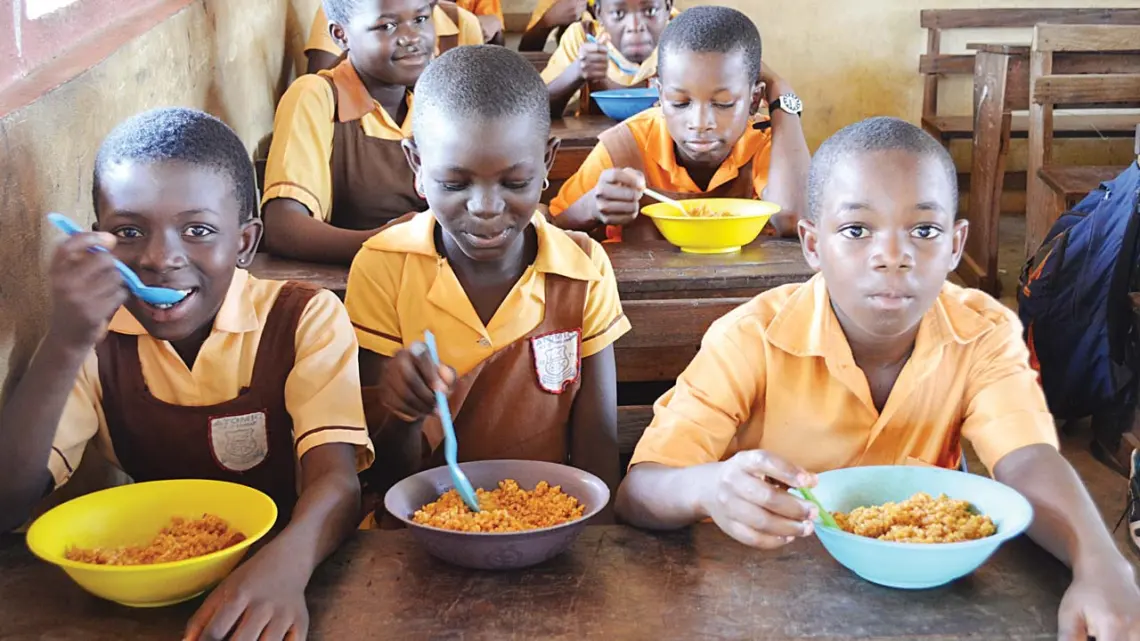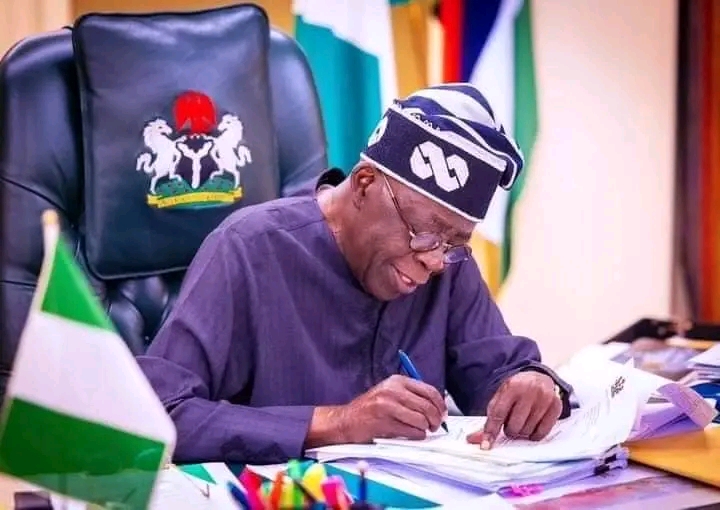Nigeria’s President Bola Tinubu, has reinstated the School Feeding Programme to address the challenges of out-of-school children in the country.
The president also authorised the transfer of the programme from the Ministry of Humanitarian Affairs and Poverty Alleviation to the Ministry of Education.
While initially introduced by the Muhamadu Buhari-led administration, the School Feeding Programme was suspended after years of operation.
This initiative is designed to benefit over 10 million school children, particularly pupils in primary one to three, who are at a higher risk of missing school due to a lack of access to food and nutrition.

President Tinubu’s commendable decision to relaunch the scheme aligns with one of the United Nations Sustainable Development Goals (SDGs) of leaving no one behind. In this context, no pupil attending public schools will be overlooked.
According to United Nations Children’s Fund (UNICEF), approximately 6 of the 17 million food-insecure Nigerians in 2023 are children under age 5, especially in states experiencing insurgency, as well as extreme weather conditions. Many children living living in these places are out of school and hungry.
Creating a secure and supportive learning environment for vulnerable young learners is an instrumental tool used by the government in advancing education, supporting health, and breaking the cycle of poverty in Africa’s most populous country.
“The school feeding programme stands as a transformative force in realising the Renewed Hope vision. Beyond its immediate impact on addressing childhood nutrition, it serves as an incentive for families to prioritise education,” said Dr. Yetunde Adeniji, Senior Special Assistant to President Bola Tinubu, during a visit to an Internally Displaced Persons (IDPs) camp at the Transitional Learning Centre in Wassa, located in Nigeria’s capital, Abuja.


